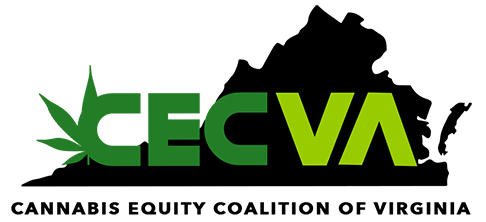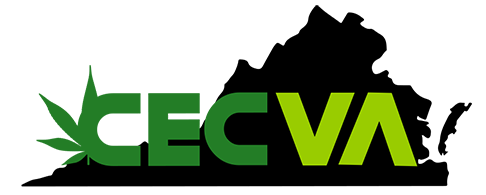We Are Open to Your Questions and Ideas
We Are Open to Your Questions and Ideas
We Are Open to Your Questions and Ideas
- Create then immediately begin to implement policies to provide for the criminal record expungement of persons who have been convicted of certain cannabis-related infractions.
- Create then immediately begin to implement a set of well-defined procedures that provide for the release of currently incarcerated persons resulting from certain cannabis-related infractions.
- Both Records Expungement & Early Release policies and activities should be put in place and begin at least six months prior to the acceptance of any Adult Use Cannabis applications for licensure.
Much like the Tobacco Commission formed by elected lawmakers in 1999 to assist impacted tobacco farmers, the Cannabis Community Re-Investment Board (the Board) will be formed and supported in similar ways.
The Board will be charged with making decisions as to how funds derived from Medical and Adult Use Cannabis industry taxes will be allocated for re-investment into Black and other impacted communities across Virginia for the direct benefit of persons in those communities.
The Board will be comprised of persons from VUU, VSC, NSU, and HU (4 total) along with seven business and community leaders from both metro and rural areas across Virginia — Central Virginia 2, NOVA 2, Hampton Roads 1, Western Virginia 1, and Southern Virginia 1.
In helping to address the apparently strong Social Justice interests relating to Virginia’s Adult Use industry, the Board will play an important role in helping to ameliorate the harm adjudication of Virginia’s harsh cannabis laws have inflicted on Black and other impacted communities statewide.
To assure both political independence and the integrity of their work, Board members will be selected by Black leaders from across the state, who will hold Board members directly accountable for helping to produce more-than effective results for their local community.
All monies received from cannabis-related taxes will be paid directly into and held by the newly formed Virginia Cannabis Agency (see details below) for exclusive use by the Cannabis Community Re-Investment Board.
After the Board carefully forms procedures and criteria related to its operations, all applications for funding will be scrutinized and thoroughly vetted by Board members.
Upon approval by the Board, a Funding Request will be sent to the Virginia Cannabis Agency and designated monies will go directly to award recipients.
As one of the primary roles of the Board, it will monitor and regularly audit the use of allocated monies to ensure programmatic plans — in setting a very high bar — exceeds anticipated expectations and stated requirements.
To assure full accountability to the Black community and Virginia’s citizenry, the Board will be charged with producing an Annual Report detailing all monies received, monies allocated to what entities, a rating on the effectiveness of programs that were funded, and precise details about all Board related operational expenses.
In summary, the Cannabis Community Re-Investment Board will provide wide-ranging oversight, follow-up monitoring, and reporting of the direct reinvestments that are needed to help ameliorate the decades-long harm to Black and other impacted communities across Virginia.
NOTE: All investment returns will be used to help fund the Board’s operational expenses.
Require both Medical and Adult Use Cannabis licensees to pay a Living Wage of at least $15 per hour to all employees as an anti-Wage Theft measure, thereby helping to bolster the financial plight of local families, communities, and economies.
A $15 per hour Living Wage will also help strengthen Virginia’s economy by employees having more income to purchase local goods and services and paying more in state income taxes thereby directly adding to the Virginia Treasury.
Require 70% of all cannabis-related state and local tax revenues (both Medical and Adult Use) be allocated to help ameliorate the harm adjudication of Virginia’s harsh cannabis laws inflicted on Black and other impacted communities across the state.
All cannabis-related tax revenues will be held by the newly Virginia Cannabis Agency (see details below) then judiciously allocated by the community-based Cannabis Community Re-Investment Board (see Board info above) solely to help build Black and other economies in impacted local communities across Virginia.
Assure that licensing requirements and criteria are very sensitive to the historically embedded financial and capital limitations of Blacks and other impacted persons.
Develop creative methods to ensure current Social Equity discussions become a reality so many, despite the aforementioned limitations, are able to reasonably gain very early entry and successfully participate in Virginia’s Adult Use Cannabis industry.
Elected lawmakers and the Virginia Cannabis Agency should develop a suite of very innovative solutions to assist Blacks and other impacted license applicants gain entry into and/or become trained in Virginia’s Adult Use Cannabis industry at all levels to include middle and upper-level management, business owners, and investors.
The solutions should be structured to help prevent the crafty development of “Front Companies” that only serve to undercut the true interest of Virginians and the need to build a cannabis industry infrastructure that helps to create wealth for Blacks and other impacted communities.
Require Adult Use Cannabis industry significantly sized* licensees to be structured into cultivation, processing, manufacturing, distribution, and retail operations – among others.
The goal of legislation here is to ensure Blacks, other impacted persons, small, local Virginia-based firms, and investors are able to fully participate in all segments of the industry is very sensitive and Socially Equitable ways.
In essence, among significantly sized* firms, Virginia’s Adult Use Cannabis industry should not be Vertically Integrated, but rather structured in a Horizontally Integrated fashion to allow Blacks, other impacted persons, and small Virginia-based companies multiple opportunities to gain entry into and achieve success in the industry.
– See: Vertical vs. Horizontal Structures
An example of Vertical Integration:
To maximize profits, via a Socially Irresponsible model, mega grocery store chains actually owning dairies, chicken hatchery operations, beef cattle operations, rice fields, vegetable farming operations, and paper mill operations that provide the core commodities available for sale in their stores.
An example of Horizontal Integration:
In being Socially Responsible, mega grocery store chains having relationships with dairy farmers, chicken hatchery operations, beef cattle ranchers, rice producers, vegetable farmers, and paper mill operators – all independent, often local, and typically, small, family-owned business operations – that provide the core commodities available for sale in their stores.
Carefully review the structure of current Medical Cannabis firms to identify methods to essentially reformat their structures into more Socially Equitable and Horizontally Integrated structures rather than the current non-Socially Equitable and Vertically Integrated structures.
The newly formed Virginia Cannabis Agency will create and conduct ongoing Public Educational Programs that primarily target Virginia’s youth, with a special focus on Black youth and youth from other impacted communities.
The focus of such programs will be to alert youth about the harm that may be caused by illegal cannabis use, along with informing both youth and adults about the laws related to the legally responsible use of cannabis in Virginia.
The educational programs should NOT be funded from tax revenues so designated to help ameliorate the harm caused to Black and other impacted communities resulting from Virginia’s harsh adjudication of cannabis laws.
As a part of continued licensure, require current and future significantly sized* Medical Cannabis licensees to incorporate a minimum of two Junior Partner firms in all of their operations.
As part of initial and continued licensure, require significantly sized* Adult Use Cannabis licensees to incorporate a minimum of two Junior Partner firms in all of their operations.
The primary goal of working with Junior Partner firms – made up of Blacks and other firms from impacted communities – is for significantly sized license holders to mentor their employees and management about the industry in helping to ensure true Social Equity and smooth development of the breadth of Virginia’s Adult Use Cannabis industry.
Based on total assets and other factors, significantly sized Medical and Adult Use Cannabis licensees may be required to incorporate additional, more than two, Junior Partner firms in all of their operations.
These particular aspects of cannabis legislation should be developed as part of the justified “corporate give back” needed to help build the infrastructure of a fair and truly Socially Equitable Virginia cannabis industry that incorporates as many as possible.
*Significantly sized is defined as having:
- Total company/parent/partner company assets in excess of $5 million
- Involvement in any aspects of the cannabis industry in more than one state
- Significant company ownership is composed of Sophisticated Investors
- as defined in Securities and Exchange Commission regulations
Form a (so named) Virginia Cannabis Agency that is charged with the administration and oversight of the entirety of Virginia’s Medical and Adult Use Cannabis industry.
Because of the newness of Virginia’s cannabis industry, its complexity, and its importance to many Black and other impacted communities, there are significant objections to the idea that Virginia’s Medical and Adult Use Cannabis industries be placed under the purview of the ABC Board or any existing state agency.
Actively support the formation and initial operation of a trade association type of entity that is organized, managed, and serves the specific needs of Blacks, impacted persons, and many others involved in or interested in involvement in Virginia’s Adult Use and Medical Cannabis industries.
Part of the goal of such an entity will be to provide technical assistance to those who are in, and others interested in getting into Virginia’s cannabis industry at some level. As well, membership in the entity will help facilitate the comradery among members needed to help build a statewide network of interested persons, talents, and resources.
Because the cannabis industry is so new, there is a definitive need for Black and other impacted persons to readily have available independent and well-structured representation at the local and statewide levels if needed.
As part of the initial licensing and re-licensure, require all Medical and Adult Use Cannabis licensees to submit an Employee/Management Social Equity Employee Census to ensure their employee population truly reflects Virginia’s vibrant racial makeup and talents.
The reports should be submitted quarterly, made public (released to the media), and include data for all entry-level staff, middle management, upper management, primary owners, and Board of Directors.
As an inducement toward initial licensing and re-licensure, Medical, and Adult Use Cannabis licensee should create/maintain an employee mix that is fully reflective of Virginia’s vibrant racial diversity in all levels of their operations, management, and ownership with a specific bend toward Black and other impacted Virginians.
The data reflected in these ongoing reports will be both reviewed and heavily considered at the time of re-licensure by Virginia Cannabis Agency officials and the general public.
Email Us
Send us an email with your comment or question, or use the form on this page.

